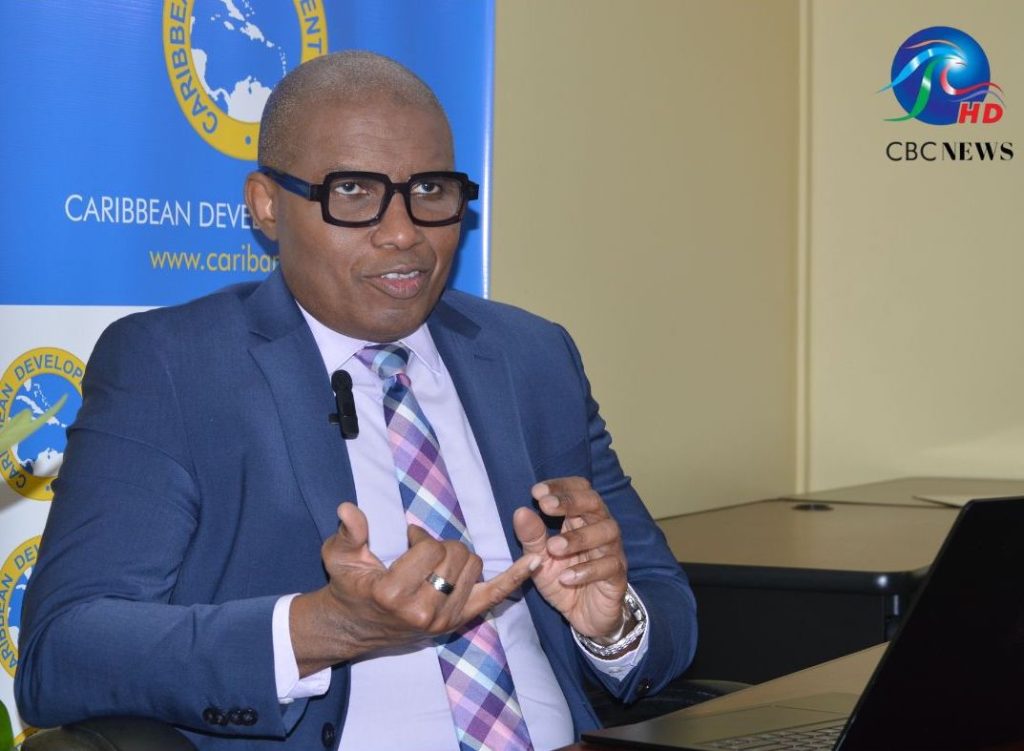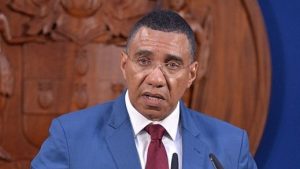
Story, pictures and video by Stacey N. Russell
Barbadian workers should not expect the Government to increase wages to match the pace in the cost of living.
Going that route of chasing inflation could “imperil” the economy, says Director of Economics at the Caribbean Development Bank (CDB), Mr. Ian Durant.
“You don’t want a situation where prices are increasing, and wages are not because that means that the purchasing power of individuals to meet their basic needs are being eroded.
“You do not want a situation either where wage increases are excessive and then lead to additional inflation; rather than allowing people’s purchasing power or standard of living to keep pace with inflation you end up overshooting and then create other problems in the economy,” he explained in an interview with CBC News on Wednesday.
Mr. Durant spoke after the CDB hosted its 2023 Annual News Conference at its Wildey, St. Michael headquarters, where the Bank’s top brass gave an overview of the state of Caribbean economies and the challenges ahead.
The economist zeroed in on the Barbados economy as public sector wages and salaries’ negotiations which started in October 2022, are back on the table following the adjournment of talks last month. He said if the increase was too high it could cause problems for balance of payments, which is the difference in total value between payments into and out of the country over a period of time.
Plus, too high a wage increase could result in a “wage spiral”. That is, because wages increase, prices increase even further, the economist stated.
“You also run the risk of imperilling your fiscal situation because if broadly wage increases are too large it has implications for revenue, and certainly if wage increases are larger than general price increases, then you have a situation where your expenditures are growing faster than your revenues; you’re increasing your government deficit and you’re having to borrow more, and you’re creating macro-economic instability,” Mr. Durant explained.
The economist however stopped short of saying what was a suitable percentage rise for wages in Barbados at this time. “I can’t give you a percentage. . . That is something that has to be negotiated with full information and more complex information than a headline inflation rate.
“It’s far more complicated than that. An economy is much more dynamic than that. Let’s say inflation is seven per cent, a seven per cent increase across the board has implications . . . for the performance of the economy that might not be obvious,” he stressed.
Mr. Durant said it was best for the Social Partnership to make the wage hike decision.
“It is about sitting down as part of a social compact – labour, private sector leadership, government – and agreeing on what is best for all involved … where there is sharing of information and the implications are clear to everyone [and] the stakes are clear to everyone.”






More Stories
Officials worried about people harbouring missing children
Call for cricket history to be taught in schools
Jamaica’s PM condemns killing of student